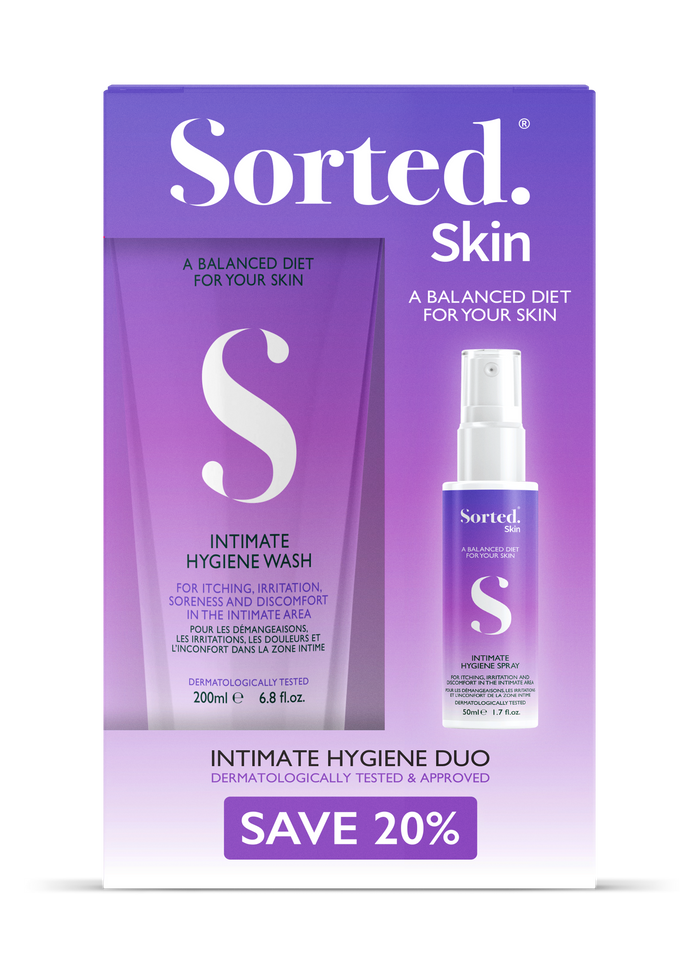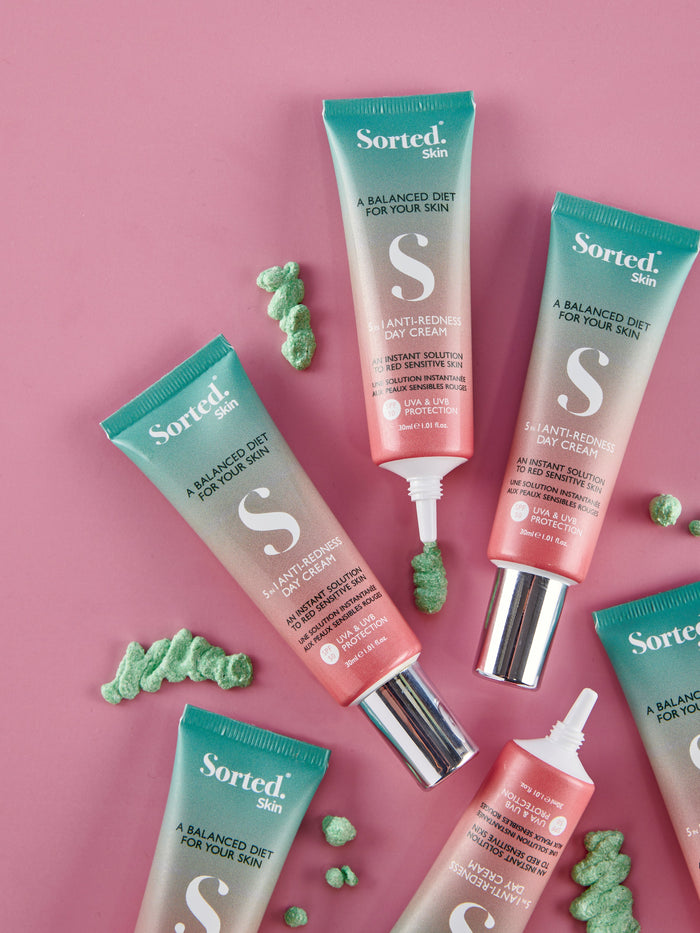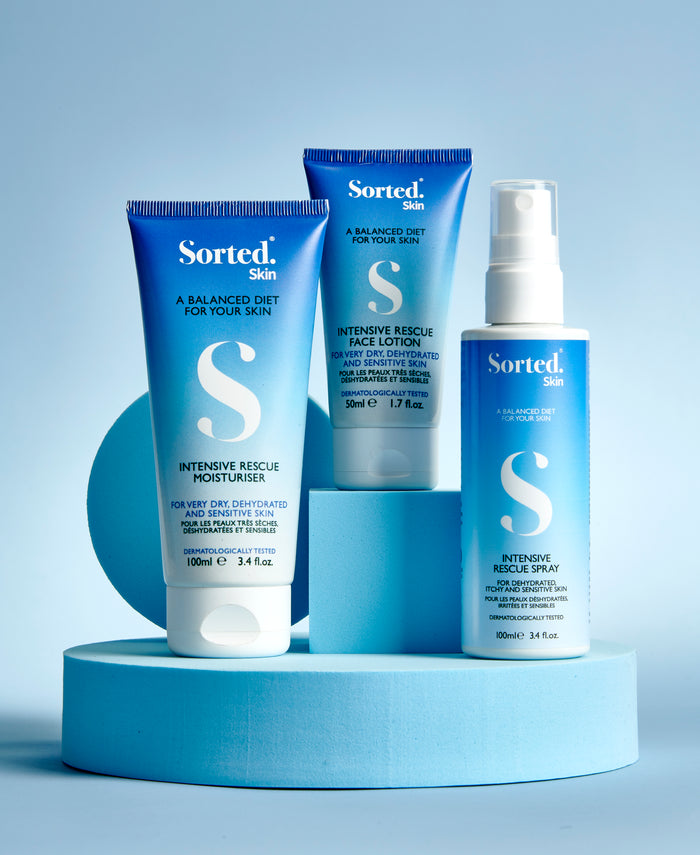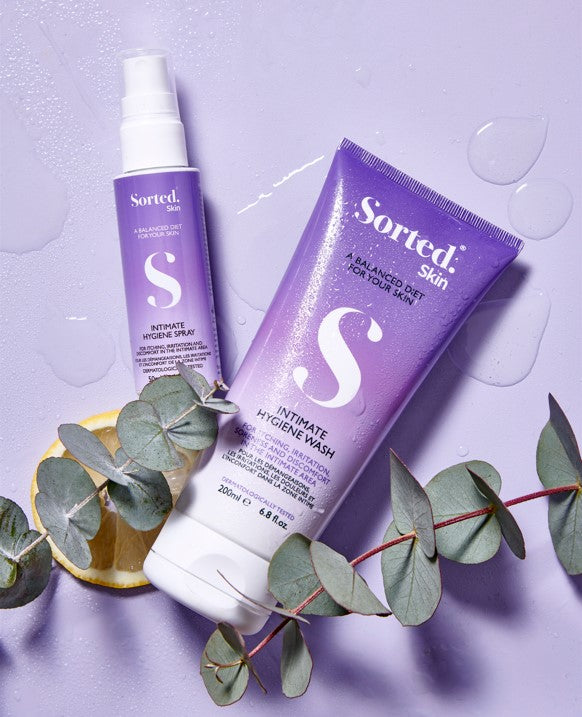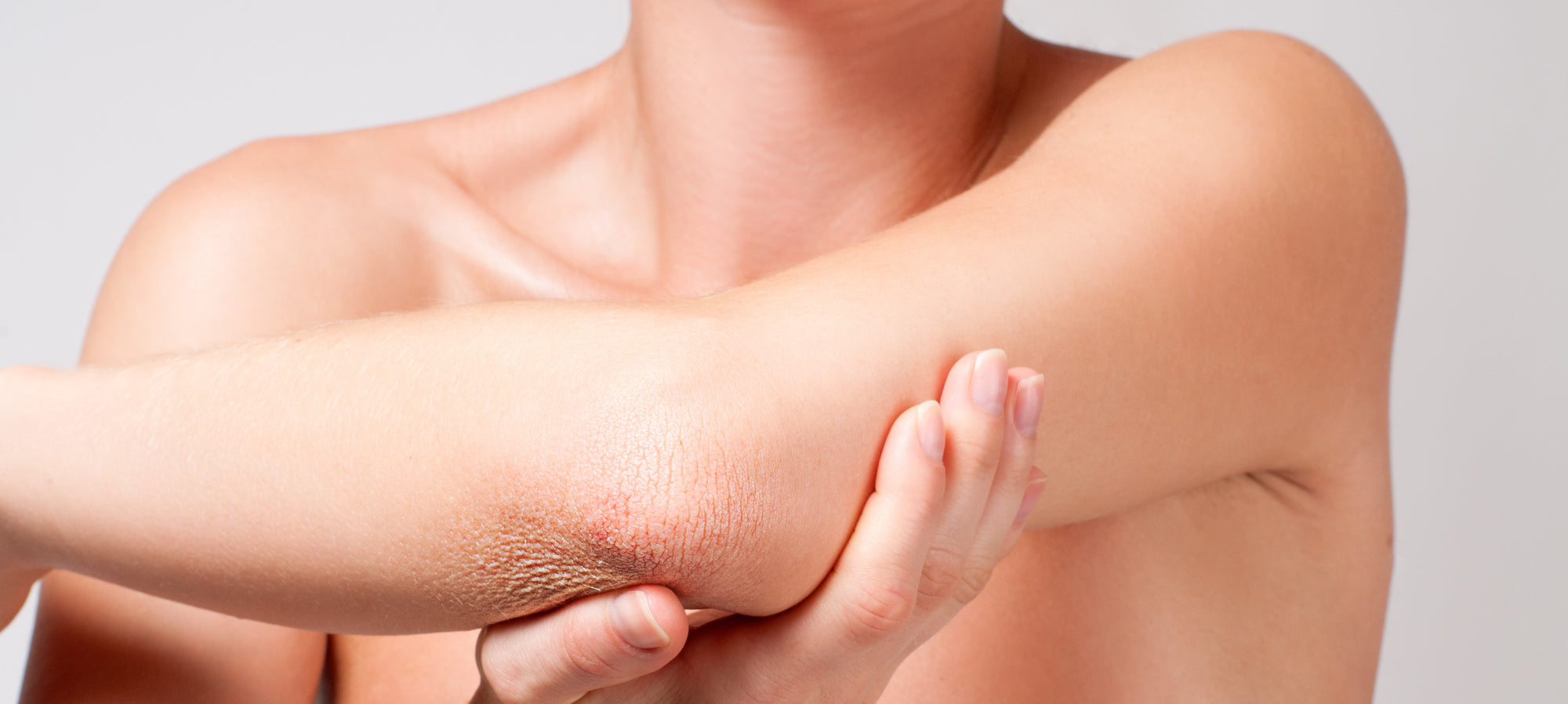

The Truth About Dry Skin
Dry skin is a broad term that covers everything from occasional dryness on the face or body, to medical conditions such as eczema, dermatitis or psoriasis.
Whatever the reason or cause (more on that later), dry, dehydrated skin is often uncomfortable, painful or unsightly, which can also impact negatively on a sufferer's mental wellbeing.
To get dry skin sorted, it’s always useful to know why it’s happening in the first place, and what you can do to achieve long term skin health (not just quick fixes), so we’ve outlined some of the key symptoms, causes, and solutions to help you take back control of your skin.
THE SYMPTOMS
Painful, irritating and uncomfortable symptoms, such as itchiness, tightness, roughness and cracking, occur when something happens to cause the skin to lose water or oil.
The appearance of the skin will also suffer and can look grey and sallow, or red and angry, as well as lined, scaly, leathery and bumpy.
All of these things add up to skin (and the person wearing it) feeling very unhappy and uncomfortable.
THE CAUSES
The skin is an amazing organ that, when given the right conditions and nourishment, is very good at taking care of itself - but a number of factors, from external influences, to an imbalance in the body, can cause it to malfunction. These include:
Genetics - our skin type, whether oily, normal, or dry, is often down to our genes, along with some common skin conditions.
Diet - eating a lot of refined sugar or saturated fat has been shown to affect the function of the skin, leading to dryness.
Medication - many medications, particularly when taken long-term, can cause dry skin as a side effect.
Winter - Dry, cold weather saps the moisture out of the air making the water in your skin evaporate more quickly.
Air conditioning - starts by pulling moisture from the outer layers of the skin, before getting to work on the inner layers.
Air travel - planes have humidity at less than 20 percent, which leads to skin dehydration.
Allergies - allergens can cause atopic dermatitis which appears as scaly, bumpy, and dry patches. For people with an existing skin condition, such as eczema, allergens can trigger the body's immune response, causing a flare up.
Air pollution - tiny particles of pollution can infiltrate the skin through pores, causing inflammation and dehydration.
Central heating - this dries the air, which leads to moisture loss in the skin, leaving it red, flaky, irritated, and prone to flare-ups.
Hot water - long and very hot baths and showers will strip away the skin’s natural oils and moisture.
Age - It’s a fact of life that skin becomes dryer as you age.
Lack of water intake - getting enough water can improve blood flow in the skin, however, if you’re adequately hydrated, drinking excess water is unlikely to bring further benefits.
Harsh ingredients - look out for ingredients such as parabens, SLS/SLES, petrochemicals, lanolin, PEGs and synthetic fragrances, which can all cause dryness and flare ups.
Sun exposure - when the skin is unprotected, exposure to UV rays can damage skin cells and cause dryness.
Microbiome disturbance - an imbalanced microbiome is associated with many skin concerns, including psoriasis, allergies, eczema, contact dermatitis, acne, poor healing, yeast and fungal infections, rosacea, and accelerated skin aging.
HAPPY SKIN ALWAYS STARTS WITH A HEALTHY MICROBIOME
The microbiome is a layer of trillions of good bacteria that live on the skin’s surface, acting as a protective barrier to balance the epidermis, keeping it free-from problems like eczema, dermatitis, rosacea, psoriasis, dryness and other common skin conditions.
When the microbiome is nourished with prebiotic ingredients, growth is stimulated amongst the good bacteria, providing all the natural minerals, vitamins and nutrients the skin needs to function effectively and take care of itself.
Meet your dry skin's new best friend; Sorted Skin Intensive Rescue Spray. 
Our dry skin hero feeds your skin a balanced diet of nourishing, naturally-active ingredients like anti-irritant oat extract, ceramide-rich jojoba, omega-rich sea buckthorn extract and soothing aloe vera, to support the skin's microbiome and work hard to instantly break the itch-scratch cycle, allowing skin to heal and look after itself from the outside, in. It helps to protect cells on AND beneath the surface of the skin, to provide complete restorative care.
LONG-TERM SOLUTIONS FOR AVOIDING DRY SKIN - A CHECKLIST:
- Prebiotic skincare
- Nourishing ingredients
- Regular moisturisation
- Stay hydrated
- Always use a high SPF
- Avoid low humidity
- Less time in hot baths and showers
- A healthy diet with less refined sugar and saturated fat
